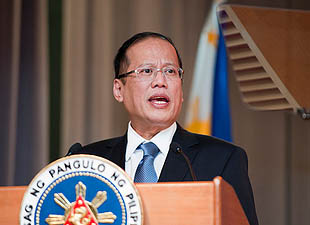
AsianScientist (Mar. 18, 2013) – More than just changing the curriculum, the government needs to invest in teachers and facilities to improve the competency of Filipino students and encourage them to enter science and technology professions, according to education reform advocates.
These comments were made amid the debate sparked by a recent report that the education department decided to drop science from the list subjects taken up by grade one and two students. This is in line with the new K to 12 Basic Education Curriculum (widely known as K-12), which was enforced in the school year that started June 2012 and adds two more years to the country’s basic education curriculum. Critics claimed that this move will hurt students who have been lagging behind in their science and math scores compared to other students in the region.
Philippine education officials have since clarified that science has not been taught as a separate subject in elementary grades one and two since 1983. They also assured that science concepts will be incorporated in other subjects, before introducing science as a separate subject starting in the third grade.
But this failed to assuage concerns on how poor math and science scores reflect the low quality of basic education in the country, beleaguered as it is by the lack of school teachers, textbooks, and classrooms.
Angel de Dios, associate professor at Georgetown University in the United States and an advocate of education reform in the country, questions why education officials continue the practice of excluding science from the grades one and two curricula.
“The fundamentals of the science disciplines, which could be as simple as listening attentively and carefully to what others say, or developing keen observation skills, are necessary toward the development of a critical and questioning mind. Not having a formal subject of science in the early years denies its primary role in humanity, how we reason, relate, and represent,” De Dios told Asian Scientist Magazine.
ACT Teachers Partylist Representative Antonio Tinio said that more than the curriculum itself, there are other factors that contribute to science comprehension in Filipino students.
“We have a lot of problems in the country’s science education. One of them is the shortage of teachers who have a background in science,” Tinio said in an interview with Asian Scientist Magazine.
Tinio, who authored a bill seeking to increase teachers’ salaries, notes that most public school teachers teach science subjects even if they do not have the necessary training. But more concerning is the fact that they’re poorly paid.
In the Philippines, a public school teacher earns about US$400 a month – barely enough to cover minimum monthly expenses in Metro Manila, where one needs at least US$500 a month to live decently and feed a family. This earning discrepancy deters professionals from going into the teaching profession, who resort instead to becoming call center agents where they can earn over US$500 a month even without a college diploma. It has also resulted in a shortage of teachers; In the current school year alone, the Department of Education (DepEd) said the public school system lacks 47,584 teachers.
“We need higher salaries and benefits for teachers. If the salaries are too low, then you can’t expect to hire the best ones for the job,” Tinio said, noting that the government needs to increase its education budget to hire and train more teachers.
Tinio added that there was a lack of science facilities and laboratories that would help to improve science education in the country.
In a separate interview, Raymond Palatino, Kabataan (Youth) Partylist Representative, suggested that apart from hiring more science major teachers to teach science, the DepEd should report the status of science education and science schools, including an inventory of science laboratories in basic schools.
“K-12 would be rendered meaningless if basic science teaching is not improved,” he said.
Palatino added that education officials also need to review the science curriculum, and “make it more responsive to the Philippine context while adopting global standards.”
The government, for its part, is implementing several programs to respond to this problem. The DepEd, for instance, received the biggest share of the 2.006 trillion pesos, or roughly US$5 billion, national budget for this year. The DepEd received 293.32 billion pesos, higher than last year’s 238.8 billion pesos. Education Secretary Armin Luistro said the higher budget will be used to hire new teachers, build more classrooms, and construct new water, toilet, and sanitation facilities.
——
Copyright: Asian Scientist Magazine; Photo: United States Marine Corps Official Page/Flickr/CC.
Disclaimer: This article does not necessarily reflect the views of AsianScientist or its staff.












